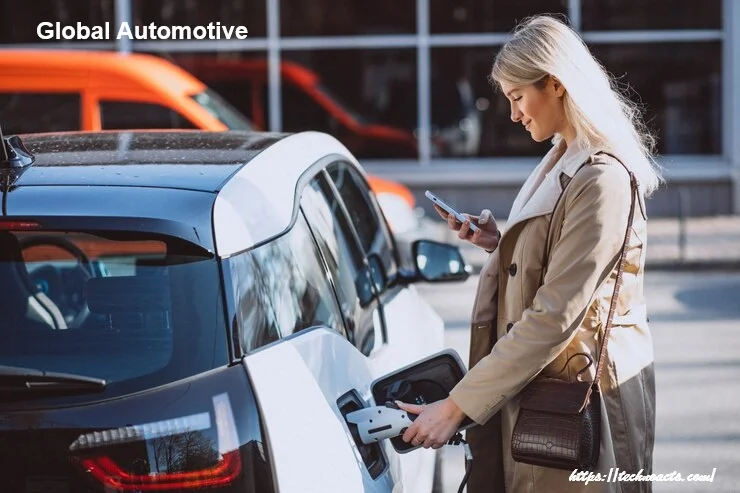By the surprise splash of electric powered vehicles (EV), the automobile commerce around the globe is presently witnessing a tectonic shift. EVs, which in the past had been little more than a sideshow, have taken the automotive stage and become the largest threat to traditional internal combustion engine (ICE) vehicles. As a consequence, the market environment is altering for consumers, public authorities, sustainable development, and technology. In this article, we talk about Electric Vehicles and their market disruption potential (possibly at a global scale), some of the trends I observe and the challenges ahead and the future market opportunities.Electric Vehicles in Global Market.
The Rise of Electric Vehicles in Global Market
Short History & The Growth of The Market
Well, the EVs were not new or something that one could think of at any-way. Though electric cars first took off around the turn of the 19th century, advances by the internal combustion engine quickly swept them aside in the battle for consumer affections on the basis of price and range. However, over the course of the last few decades, a sudden uptick of environmental sensitivity, technological advancement and government incentive has caused this decades-long slumber of the EV to awaken.
Then came hybrid cars — think about the Toyota Prius, in the early 2000s — to pave the way to the zero-emission car. Tesla offered the Roadster in 2008, and the car was instrumental in proving that EVs could be more than just appliances. Much has transpired in the EV space in the intervening time. Sales of EVs globally clim bed to approximately 14 million units in 2023, up from just 450,000 in 2015. This trend is not going away and EVs are projected to account for 30% of vehicle sales by 2030.
Factors Driving EV Adoption-Electric Vehicles in Global Market
The push for electric vehicles comes with amazing speed, and with a lot of drives behind it:
Environmental Concerns: Climate change and air pollution are the main drivers of
Effects on the Automotive Sector
Challenges of conventional automotive companies-Electric Vehicles in Global Market
The rise of electric vehicles is shaking the foundations of the auto industry, forcing some legacy automakers to change their ways — or die. Tesla and other pure EV makers carved out a decent market for themselves and now are among the most valuable car companies in the world. That’s forced legacy automakers such as Ford, General Motors and Volkswagen to move faster with their EV strategies.
Other legacy automakers are pouring bllions into EV development and production. A case in point, Volkswagen is investing $100 billion in electrification up to 2030, with an expectation that 70% of its European sales will be electric by the end of the decade. General Motors, for instance, has also pledged to be an all-electric car company by 2035.
The shift isn easy, though. Automakers will have to navigate complicated supply chains, lock in supply of raw materials for batteries, and adjust their factories. The transition to EVs takes massive amounts of research and development, something that could break a company who is still reliant on ICE vehicle sales.
Emergence of New Players-Electric Vehicles in Global Market
A new era of internal combustion vehicle enthusiast has reached the door of automotive to room of the EV revolution where the newcomers are also entering the scene. New companies such as Rivian, Lucid Motors, and NIO are putting pressure on traditional automotive players with new ideas and fresh technologies. Because these startups have nimble natures when compared to traditional automakers, they can be fast movers and get models to the market quickly and capitalize on consumer trends.
EVs have also piqued the interest of tech pals such as Apple and Google, both of which are allegedly working on electric and autonomous vehicles. As the automotive and tech worlds converge they create a competitive landscape where software and data become as critical as hardware.
Obstacles and Way Forward
Headline Battery Technology and Sustainability
Electric vehicles are taking off but there are hurdles. Developing sustainable and effective battery technology is one of the largest obstacles. Lithium-ion batteries can only do so much in terms of your range, the cost will always be high, and the environmental impact of the battery pack will only worsen as EV sales skyrocket. Efforts also continue to explore other battery technologies, including solid-state batteries that have the potential of higher energy density, faster charging times, and improved safety.
Another concern deals with the environmental impact caused by battery production and disposal. The extraction of raw materials for batteries like lithium and cobalt have enormous environmental and social impact. The automotive sector is looking at how to minimize the environmental impact of batteries, from recycling to greener mining practices.
Competition and Technology in the Market
As more automakers join the game, EV market competition is heating up. It is prompting innovation, leading the way for making everything from inexpensive mass-market models to high-performance luxury vehicles. Competition is expected to drive down prices; thus allowing consumers to have access to a wider range of choice and technology.
Adoption and Market Dynamics of Automotive Across Regions
Of course, we noted that EV penetration rates vary widely around the world. However, some countries, including Norway and China, are at the forefront of EV penetration whereas significant gaps have been observed in other countries, especially in developing countries, further emphasising issues associated with cost, infrastructure and policy support. Key Takeaway: EV adoption across the global automotive market will take place unevenly, with some regions of the world making faster transitions than others.
Conclusion
Electric cars have a deep and broad impact on the automotive industry around the world. With the growing popularity of EVs, they are transforming the industry, spurring innovation and will paint a sustainable future. Despite the challenges, the tidal wave of people trying to embrace electric vehicles is showing no sign of
